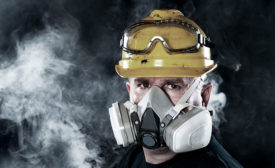Home » OSHA regulations
Articles Tagged with ''OSHA regulations''
A Confined Space blog post
Scott Mugno: What can we expect after his hearing?
December 8, 2017
Re-Imagining OSHA in the Trump era
Would doing away with safety regs help or hurt you?
September 1, 2017
Become a Leader in Safety Culture
Build your knowledge with ISHN, covering key safety, health and industrial hygiene news, products, and trends.
JOIN TODAYCopyright ©2025. All Rights Reserved BNP Media.
Design, CMS, Hosting & Web Development :: ePublishing







